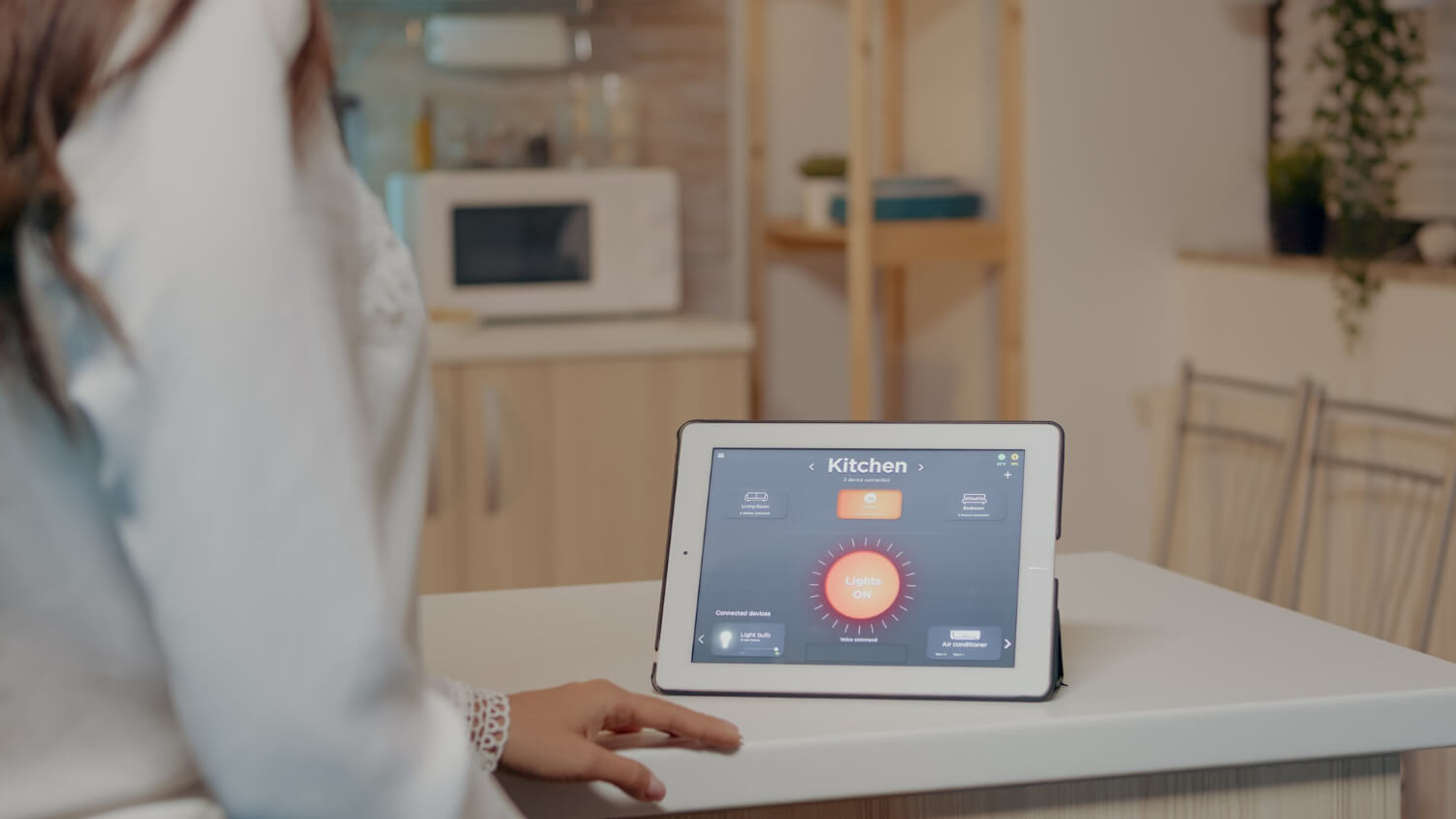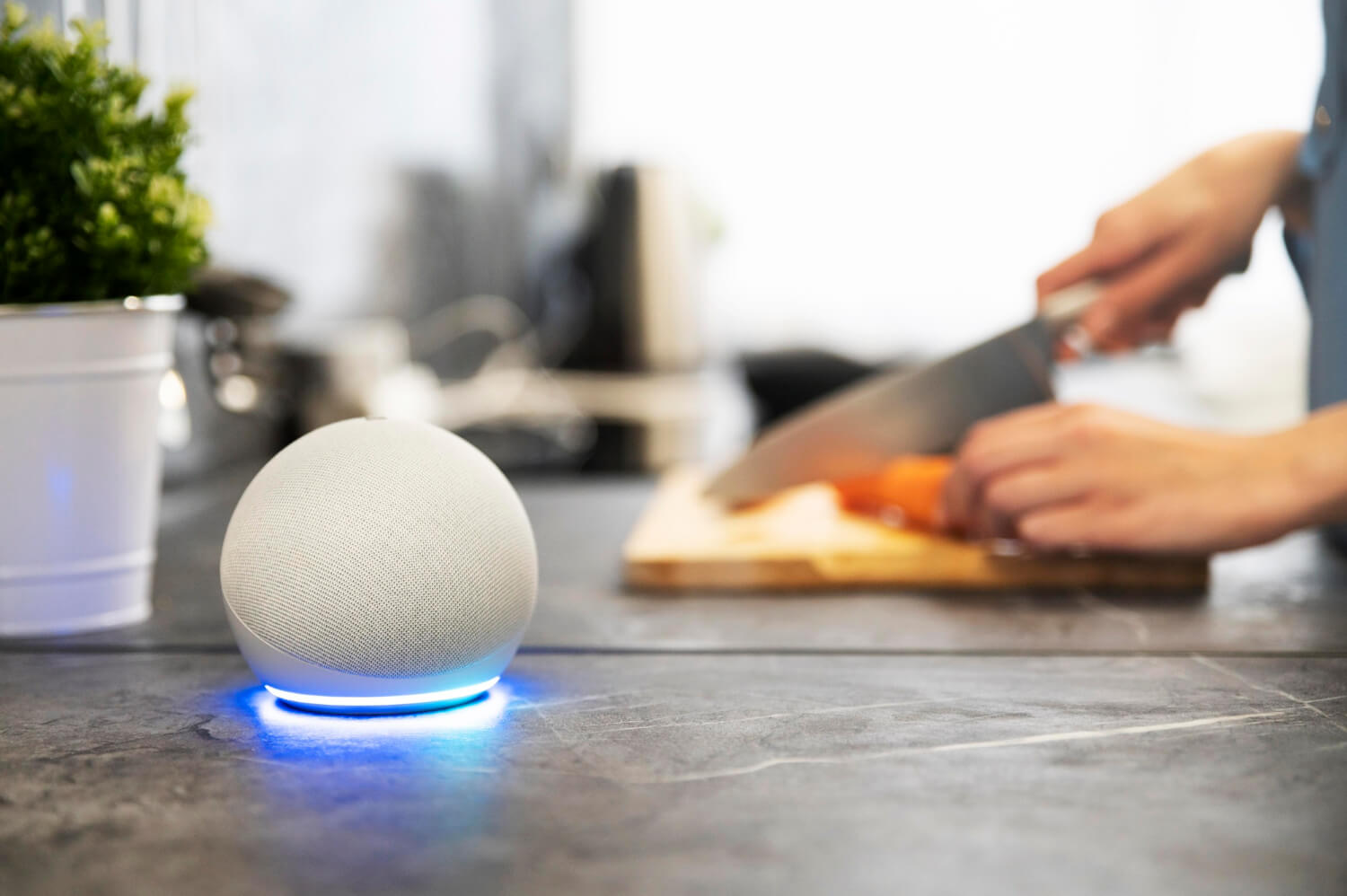Best Smart Home Hub: Revolutionizing Home Automation
In today’s digital age, our homes are experiencing a remarkable transformation. With the help of advanced technology, we can now control a wide range of smart devices in our homes, such as lights, thermostats, security systems, and more, with a simple voice command or a tap on our smartphones.
This profound change is made possible through the use of smart home hubs, which act as the central control center for all your interconnected devices. This article explores the concept of a smart home hub, its significance in our increasingly interconnected lives, and provides an overview of the content we will cover in the following sections.
What is a Smart Home Hub?
A smart home hub is a device or software system that serves as the central nervous system of your smart home. It connects and controls various smart devices in your home, ensuring they work together seamlessly. Imagine it as the conductor of an orchestra, ensuring that all the instruments play in harmony. These hubs simplify your life by enabling you to manage and automate your smart devices effortlessly. Whether you want to turn on the lights, adjust the thermostat, or check your security cameras, a smart home hub simplifies the process.
Benefits of Having a Smart Home Hub
Improved Home Automation
One of the primary advantages of having a smart home hub is the ability to create customized automation routines. This means that you can set up your smart devices to respond to specific triggers or schedules. For instance, you can configure your lights to automatically dim when you start watching a movie, or instruct your thermostat to adjust the temperature when you leave for work. The possibilities are nearly endless, and it allows for a level of personalization and convenience that was once the stuff of science fiction.
Enhanced Security
Smart home hubs offer you the means to integrate security features seamlessly. This might include connecting security cameras, door locks, and alarms. By doing so, you can receive real-time alerts and monitor the security of your home from anywhere in the world. Imagine being able to check your security cameras remotely, lock your doors, or receive instant notifications if unusual activity is detected. These features add an extra layer of protection and peace of mind to your life.
Energy Efficiency
In today’s world, energy efficiency is more important than ever. Smart home hubs offer a solution to this with the ability to connect and control your thermostat, lighting, and even appliances. This means you can optimize energy usage based on your preferences and schedules, leading to a reduction in your carbon footprint and energy bills. The ability to turn off lights or lower the thermostat when you’re not home can add up to significant energy savings over time.

Convenience and Ease of Use
The convenience of a smart home hub is perhaps one of its most alluring features. It allows you to streamline your daily routines by enabling voice commands or automated routines. Simply say “Good morning,” and your smart home hub can start your coffee maker, provide you with the weather forecast, and adjust the lighting to match the time of day. It’s like having your own personal assistant, ready to respond to your every need.
These are just a few of the benefits that come with having a best smart home hub. They are versatile devices that cater to various aspects of modern living, from convenience and security to energy efficiency. In the following sections, we will delve into the top brands in the market, the key factors to consider when choosing a smart home hub, and the installation and setup process. By the end of this article, you’ll have a comprehensive understanding of how smart home hubs can enhance your life.
Top Best Smart Home Hub Brands
In the ever-growing world of smart home technology, several brands have emerged as leaders in the smart home hub market. Each of these brands offers its unique ecosystem and features, catering to different user preferences and needs. Let’s take a closer look at some of the top brands in this space.
1. Amazon: Echo and Alexa
Amazon’s Echo devices are known for their wide range of compatibility and the voice assistant, Alexa. Echo devices serve as an excellent choice for those who want a robust, user-friendly smart home hub. They can control a variety of smart devices and provide a wide selection of voice commands. If you’re already an Amazon Prime member, you’ll also find additional benefits with music streaming and shopping features.
2. Google: Nest and Google Assistant
Google’s Nest line of smart home products is another prominent player in the field. They use Google Assistant, which is known for its exceptional voice recognition and search capabilities. If you’re already entrenched in the Google ecosystem with Gmail and Google Calendar, Nest products can seamlessly integrate with your daily life.
3. Apple: HomeKit and Siri
Apple’s HomeKit is an ideal choice for those within the Apple ecosystem. The compatibility between Apple devices is unparalleled, and with the help of Siri, you can control your smart home using your voice. If you have an iPhone, iPad, or other Apple devices, HomeKit is a natural fit for your smart home setup.
4. Samsung: SmartThings
Samsung’s SmartThings platform is designed to be highly versatile, making it easy to connect and control various devices. SmartThings works well with a wide range of third-party devices and supports both Zigbee and Z-Wave protocols, ensuring compatibility with numerous products.
Each of these brands offers a unique set of features and integrations, so it’s essential to consider your current devices and ecosystem when choosing the best smart home hub for your needs.
Comparison of Smart Home Hubs
Now that we’ve explored some of the top smart home hub brands, it’s time to dive deeper into the comparison of these hubs. Each hub has its strengths and weaknesses, making it crucial to choose one that aligns with your specific requirements. Here’s a closer look at some of the factors to consider when making your decision:
Features: Voice control and automated routines are just a couple of the capabilities that smart home hubs offer. Review the features and decide which ones fit your preferences and needs.
Compatibility: Check whether the hub is compatible with your existing smart devices. Compatibility ensures that your devices can seamlessly communicate with the hub.
Ecosystem: Consider your existing ecosystem of devices. If you’re primarily invested in one brand’s products, choosing a hub from the same brand can enhance integration.
User Interface: Evaluate the user interface and app that the hub uses. A user-friendly interface can make setup and daily use more straightforward.
Price: Smart home hubs come at different price points. Determine your budget and find a hub that provides the features you need within that budget.
By comparing these aspects, you can make an informed decision on which smart home hub is the best fit for your home.
Setting Up Your Smart Home Hub
Once you’ve selected your smart home hub, the next step is setting it up. Fortunately, the process is usually straightforward and can be completed by following the manufacturer’s instructions. Here’s a general overview of how to set up your smart home hub:
- Unbox the Hub: Begin by unboxing your smart home hub and ensuring that all the necessary components are present.
- Connect to Power: Plug the hub into a power source. Most hubs use a standard power outlet or USB connection.
- Connect to Wi-Fi: Ensure that the hub is connected to your Wi-Fi network. This is essential for it to communicate with your smart devices and the cloud.
- Install the App: Download the app associated with your smart home hub. It’s typically available on the App Store or Google Play Store.
- Observe the App’s Directions: You will be guided through the setup procedure via the app. Making an account, tying the hub to the app, and adding your smart devices are frequently required steps in this process.
- Device Setup: After adding your hub to the app, proceed to add your smart devices one by one. The app will typically provide step-by-step instructions for each device.
- Customize Settings: Customize your settings and preferences within the app. This can include naming your devices, setting up automation routines, and adjusting device settings.
- Testing: By utilizing the app to control your devices or, if appropriate, voice commands, test the setup. Verify that everything is operating as it should.
By following these steps, you can successfully set up your best smart home hub and enjoy the benefits of home automation and control.
Smart Home Hub Compatibility
Before purchasing a best smart home hub, it’s crucial to verify its compatibility with your existing devices. Compatibility ensures that your devices can seamlessly communicate with the hub, allowing for an integrated and convenient experience. Here are some factors to consider:
Device Types: Check if the hub supports the types of devices you have, such as lights, thermostats, locks, cameras, and sensors.
Brands and Models: Ensure that the hub is compatible with the specific brands and models of your smart devices.
Communication Protocols: Some devices use different communication protocols, such as Zigbee, Z-Wave, or Wi-Fi. Verify that the hub supports the protocols your devices use.
Voice Assistants: If you plan to use voice control, check if the hub integrates with popular voice assistants like Amazon Alexa, Google Assistant, or Apple Siri.
Third-Party Integrations: Some hubs offer extensive third-party integrations, allowing you to connect with a broader range of devices and services.
To make the most of your smart home hub, it’s essential to choose one that works seamlessly with your existing setup. Compatibility ensures that your devices can communicate effectively and that you can control them through a single interface.

Voice Assistants and Smart Home Hubs
Voice assistants play a significant role in the functionality of smart home hubs. They offer an intuitive and convenient way to control your smart devices using natural language commands. Some of the popular voice assistants that integrate with smart home hubs include Amazon Alexa, Google Assistant, and Apple Siri. Here’s how voice assistants enhance the capabilities of your smart home hub:
Voice Control: You can use voice commands to control your connected devices. For instance, you can say, “Alexa, turn off the lights,” and your smart home hub will carry out the command.
Natural Language Processing: Voice assistants are equipped with natural language processing capabilities, allowing you to speak in a more conversational manner. You can ask questions, make requests, and give instructions.
Multi-Device Control: With voice control, you can manage multiple devices simultaneously. For instance, you can create scenes like “movie night” that dim the lights, lower the blinds, and turn on the TV with a single command.
Integration with Other Services: Voice assistants often integrate with various third-party services, such as music streaming, weather updates, and online shopping. This extends their functionality beyond smart home control.
Custom Voice Commands: You can set up custom voice commands for specific actions, creating a personalized and user-friendly experience.
By integrating a voice assistant with your smart home hub, you can enjoy the convenience of hands-free control and a more interactive and engaging smart home experience. Whether it’s turning on the lights, adjusting the thermostat, or checking the weather forecast, voice assistants make it easy and intuitive.
Security and Privacy Concerns
While the benefits of smart home hubs and interconnected devices are abundant, they also come with security and privacy considerations. As the number of connected devices in our homes increases, so do the potential risks and vulnerabilities. It’s crucial to take steps to protect your smart home hub and your personal data. Here are some security and privacy concerns to be aware of:
Device Vulnerabilities: Smart devices can have vulnerabilities that hackers can exploit. Regularly update your devices to ensure they have the latest security patches.
Weak Passwords: Your devices and network could be attacked if you use weak or default passwords. For every device and service, use strong, individual passwords.
Network Security: Use encryption and a strong password to protect your home Wi-Fi network. This serves as the initial barrier against unwanted access.
Firmware Updates: Keep your smart home hub’s firmware and software up to date. Manufacturers release updates to address security issues and improve functionality.
User Data: Examine the privacy policies of the tools and services you utilize. Know what information is gathered and how it is put to use.
Guest Network: To keep your smart devices apart from your main network, think about establishing a separate guest network.
Multi-Factor Authentication: Whenever possible, enable multi-factor authentication for your accounts and devices to add an extra layer of security.
By being proactive in addressing these concerns, you can significantly reduce the risk of security breaches and protect your smart home from potential threats.
Future of Smart Home Hubs
The world of smart home hubs is continually evolving. As technology advances, we can expect to see exciting developments that will further enhance the capabilities of these hubs. Here are some of the trends and technologies that are shaping the future of smart home hubs:
5G Connectivity: The rollout of 5G networks will provide faster and more reliable internet connections, making it even easier to control and manage your smart devices remotely.
Artificial Intelligence (AI): AI-powered smart home hubs will become more intuitive, learning your preferences and adapting to your routines.
Edge Computing: Edge computing allows data to be processed closer to the source, reducing latency and enabling quicker responses from smart devices.
Interoperability: The industry is moving toward greater interoperability, allowing devices from different manufacturers to work seamlessly together.
Energy Efficiency: Smart home hubs will continue to focus on energy-efficient solutions, helping homeowners reduce their environmental impact and save on energy bills.
Voice Assistant Advancements: Voice assistants will become even more conversational and context-aware, making interactions with your smart home even more natural.
The future of smart home hubs promises greater integration, convenience, and intelligence. As technology continues to advance, these hubs will play an even more significant role in our homes, making them smarter and more responsive than ever before.
Conclusion
In conclusion, smart home hubs are revolutionizing the way we interact with our homes. These central control centers enable us to seamlessly manage a wide range of smart devices, providing us with enhanced convenience, security, and energy efficiency. With top brands like Amazon, Google, Apple, and Samsung leading the way, you have a variety of options to choose from to suit your specific needs and preferences.
Once you’ve selected the right smart home hub, the setup process is relatively straightforward, and compatibility with your existing devices ensures a smooth and integrated experience. Voice assistants, such as Amazon Alexa, Google Assistant, and Apple Siri, further enhance the functionality of your smart home hub, allowing for intuitive voice control.
However, it’s essential to be mindful of security and privacy concerns, as the increasing number of interconnected devices presents potential vulnerabilities. By taking proactive steps to secure your smart home network, you can enjoy the benefits of a smart home while safeguarding your data.
As we look to the future, the evolution of smart home hubs promises even more integration, efficiency, and responsiveness. With the advent of 5G, AI, and edge computing, the possibilities are endless. Smart home hubs are here to stay, offering us a more connected and intelligent way of living. So, choose your smart home hub wisely and embark on a journey towards a smarter and more connected lifestyle.
FAQs
1. What is the primary function of a smart home hub? A smart home hub acts as a central controller for various smart devices, allowing you to automate and manage them seamlessly.
2. Which smart home hub is best for beginners? Amazon’s Echo and Google’s Nest are popular choices for beginners due to their user-friendly interfaces and extensive device compatibility.
3. How can I ensure the security of my smart home hub? To enhance security, regularly update your devices, use strong passwords, and ensure your Wi-Fi network is secure.
4. Do all smart home hubs work with voice assistants? Many smart home hubs are compatible with voice assistants like Amazon Alexa and Google Assistant, providing voice control capabilities.
5. What can we expect in the future of smart home hubs? The future promises more advanced integration with technologies like 5G, AI, and edge computing, leading to even more intelligent and responsive smart homes.
Related Post:







